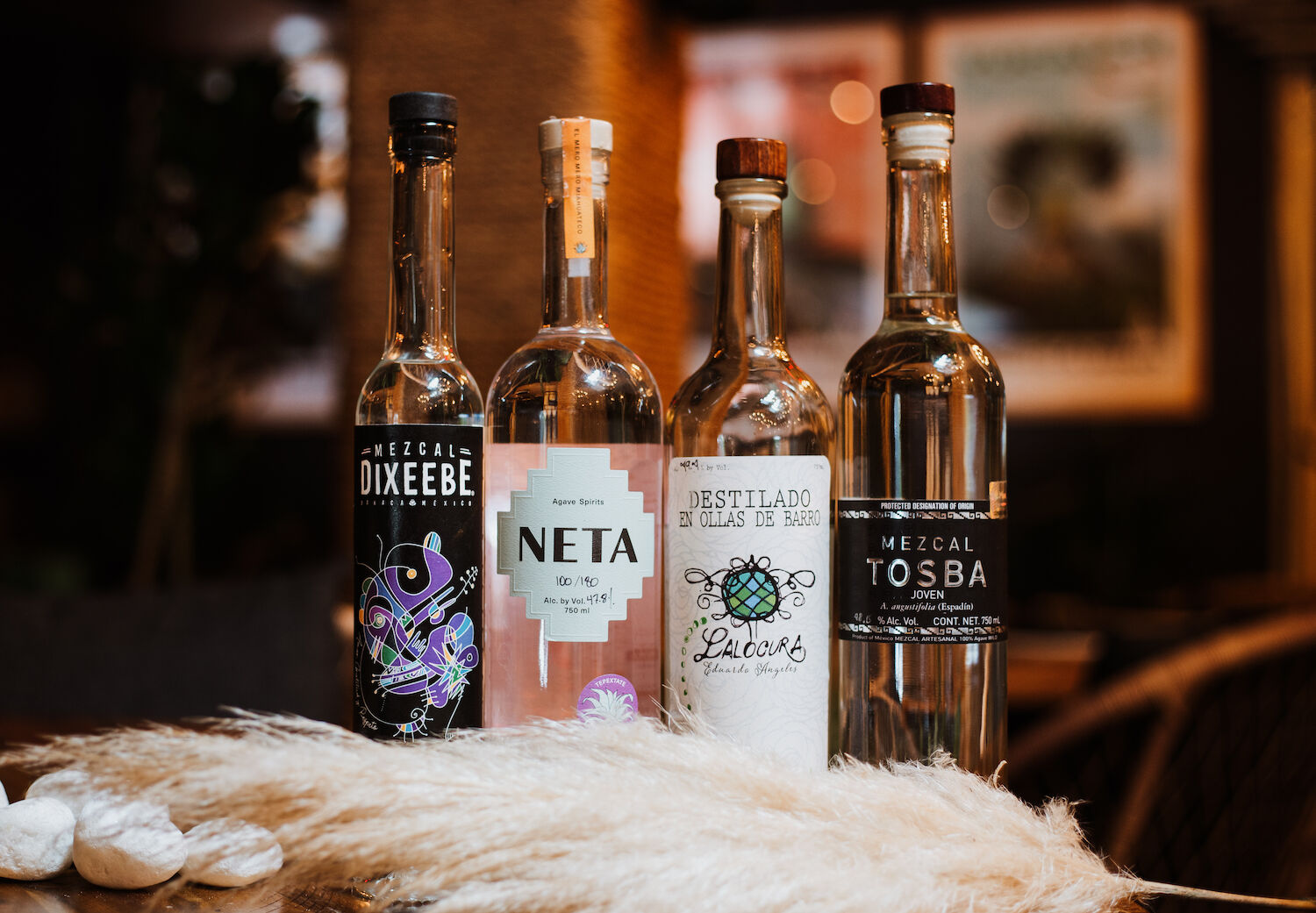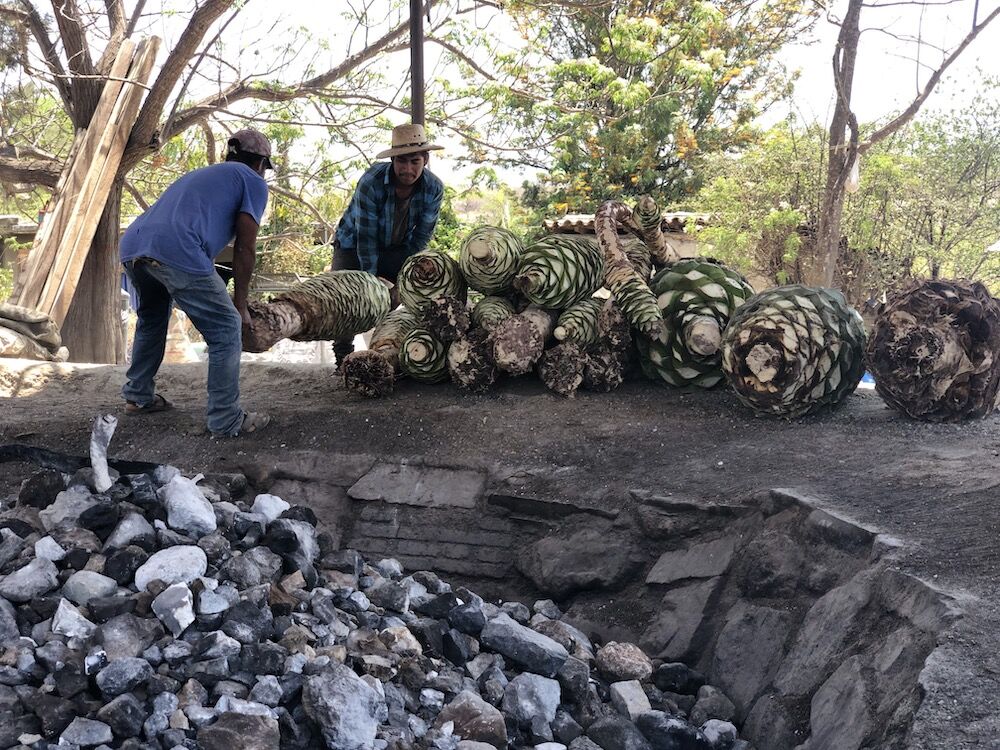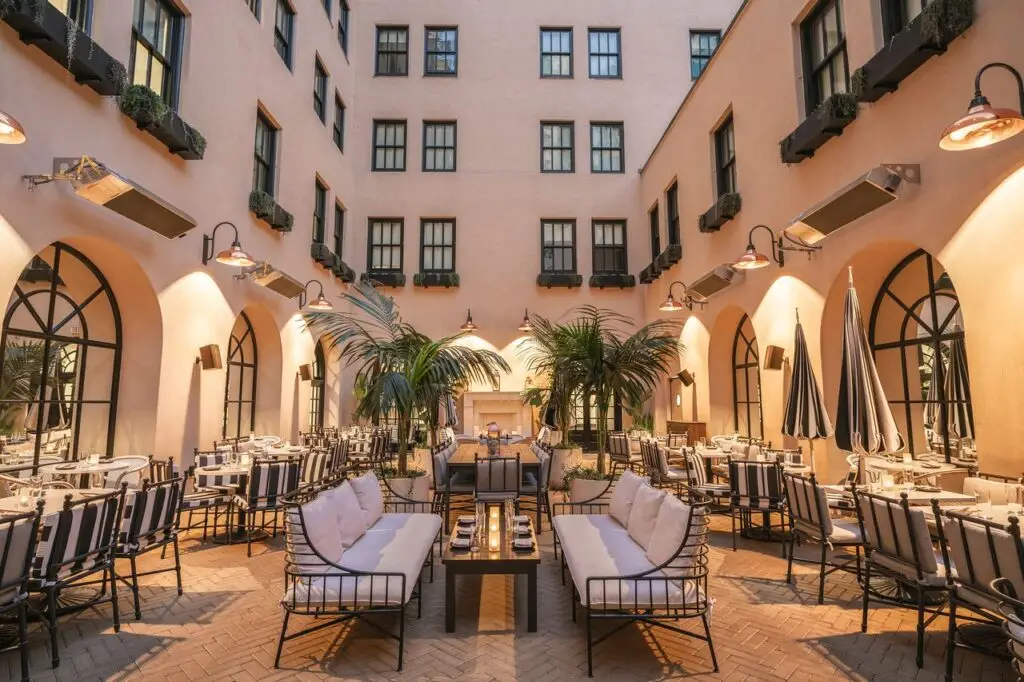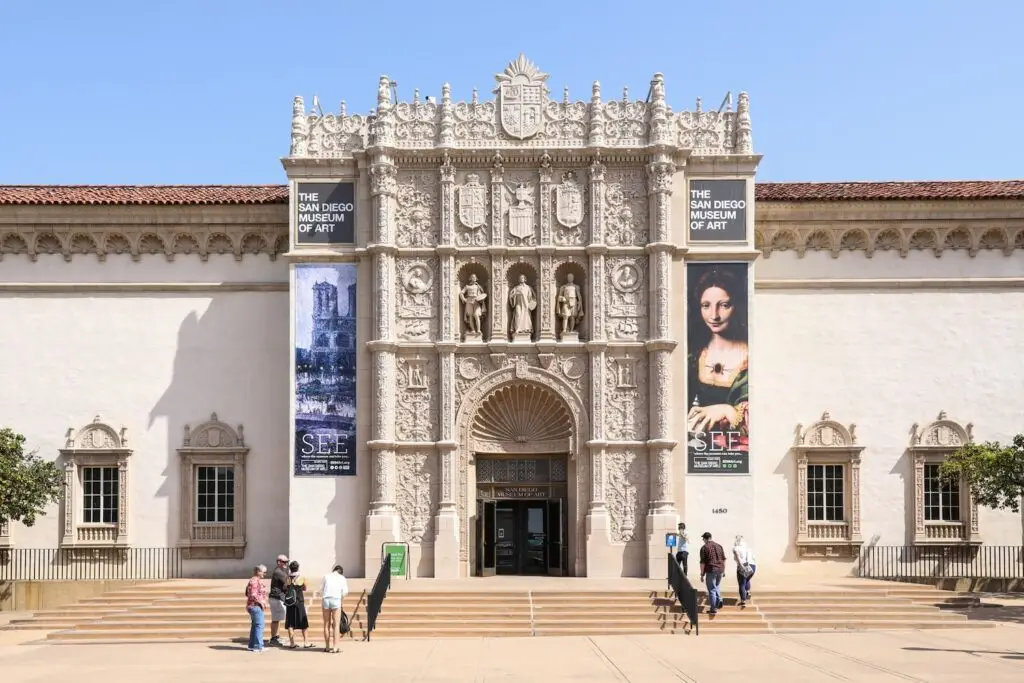
Little Italy’s Camino Riviera features a unique, in-depth list of small batch mezcals
Joann Van Noy
Planes whoosh loudly overhead as I laze in a wicker chair. The scents of burning wood remind me of childhood days at the fire temple. Something about this crackling aroma in the bright sunshine transports me into a deeply relaxing place. Without overplaying it, it’s vaguely spiritual. On the large wooden table rests a handmade mini-clay pot (copita), holding a thimbleful of clear liquid–the first sip of my foray into the world of nano-batch mezcal.
This urban back patio looks like I’ve just stepped off a plane and come to a kitschy little local spot in Mexico. In reality, I’m at Camino Riviera, SDCM Restaurant Group’s latest venture tucked away on a corner of India St. in Little Italy.
My company for the evening is Stephen O’Halloran, bar manager. His real title should be “mezcal fanatic” but that would be an understatement. The spiritual comparison rings particularly true when O’Halloran speaks of the producers he works with to curate the restaurant’s unique and in-depth mezcal list. There is a reverence.
Freshly back from his 20-something trip to Oaxaca (he lost count), O’Halloran shines as he recalls living in the homes of the region’s mezcaleros, watching them carry on ancestral traditions. O’Halloran had never met some of these mezcaleros before, yet they welcomed him into their sparse homes with open arms, feeding him and allowing him to immerse himself into what it takes to make mezcal. “Some of these people are planting agave knowing that they’ll never see it harvested,” O’Halloran says in awe. “Some of these families have been doing this since the 1800s.”
In most of the areas, technology is nonexistent. In some, there is no running water, and no paved roads. They have their farms, their families, and their mezcal.

Camino Riviera’s bar manager, Stephen O’Halloran, sources mezcal from mezcaleros in Oaxaca who carry on ancestral traditions
The mezcaleros that O’Halloran seeks out are not ones who mass-produce and sell to a multitude of restaurants in the U.S. and elsewhere. Rather, he looks for the ones that produce nano-batches—200 bottles would be a stretch. Every bottle is hand-numbered and, in some cases, can only be obtained if you’re a friend of the family. For these mezcaleros, it’s not about making money, but about respecting their ancestors and carrying on the family’s mezcal legacy.
Like tequila, mezcal is made from the agave plant. Unlike tequila, which is only made from the blue Weber agave species, mezcal can be made from over 30 agave species and varieties. The most popular variey is espadín, as it “only” takes 8-12 years to mature and is easier to harvest. Typically, agave plants take anywhere from 15-25 years to mature and are most commonly grown in the semi-arid desert areas of Oaxaca amongst other crops like corn and beans.
Just as there are multiple varieties of agave plant used to make mezcal, there are many different methods of production. Most are specific to the family’s history. A single village in Oaxaca can house dozens of fábricas (production houses), each using a different method to harvest and cook down the heart of the plant to yield mezcal. Unlike tequila, which is produced industrially, mezcal is small-batch. It can be compared to wines in that the biodiversity of where the agave is grown plays a tremendous role in the flavor profiles, as does the method of production.
“Each bottle is a once in a lifetime experience,” O’Halloran explains. “There’s no standardization. Everything is ‘dependé.’” When it comes to the 50-plus list of mezcals O’Halloran has personally procured for Camino Riviera, each bottle is ethically sourced and produced and no two experiences will ever be the same. His mission is simple: “to cultivate a greater understanding and appreciation for what was the first distilled spirit in the Americas.” Every sip contains history and complexity, making a tasting experience an adventure for any aficionado or beginner. From the mezcals to the copitas they’re served in, O’Halloran ensures that the spotlight shines bright on the families who made them, some of whom have never set foot inside a restaurant that sells their wares.
“There’s the cocktails, there’s the pairings, and there’s this beautiful secret,” O’Halloran teases, speaking of the intimate monthly tasting sessions he hosts. The mezcals are paired with bites from Chef Brian Redzikowski, famed for his whimsical approach to his many culinary menus (Kettner Exchange, Waverly, etc.).
Must-try dishes include Redzikowski’s fine-dining play on a certain fast food chain’s Gordita Crunch, an adaptation of his famous Pig Mac, and a gorgeous rendition of yam enchiladas. His Brentwood corn ice cream is a sweet showstopper. It bears noting that their entire cocktail list can be modified into mocktails and these do not disappoint. Finally, can someone please weigh in on whether it would be rude of me to ask for seconds and thirds of their welcome basket of tajin popcorn?
PARTNER CONTENT
So far I’ve shown restraint but that’s not likely to last.




















